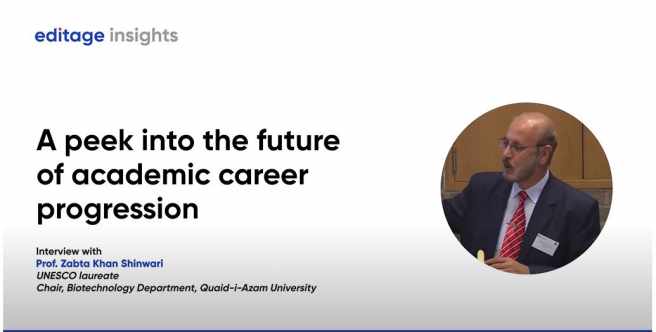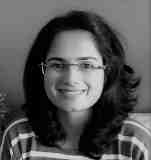A peek into the future of academic career progression: Interview with Prof. Zabta Khan Shinwari
What defines success in academia has stayed largely the same over the past few decades. Publications in high-impact journals, number of citations, recognition through prestigious grants or awards—all of these are still deeply valued. But have academic roles and progression kept pace with changing times and new challenges? What does it take to be a good—and not just successful—researcher? How can researchers have a fulfilling, impactful, and ethical career? And how can research integrity be woven into the fabric of research culture such that the way research performance is measured promotes ethical conduct?
These are some big questions for the academic community worldwide.
In a conversation with Prof. Zabta Khan Shinwari, I ask him to share his views by reflecting on his own journey as an academic. Prof. Shinwari is a distinguished plant biotechnologist and UNESCO laureate recognized for his work on promoting research ethics. He is currently Chair, Biotechnology Department, Quaid-i-Azam University, Islamabad, and in the past, served as Secretary-General of Pakistan Academy of Sciences.
In the first segment of the interview, he spoke about the skills needed at different stages of a research career. In the second segment, he discussed multiple ways in which research ethics can be integrated into research culture.
In this third and the last segment, Prof. Shinwari talks about what he believes will be important factors that will shape research careers in the future.
[VIDEO TRANSCRIPT]
Mriganka: I have one last question. You know, based on everything that you said, what do you believe academic career progression will look like in the future, like say, you know, maybe, I don't know, 10 or 20 years from now.
Prof. Shinwari: Very interesting question. I'm not a palmist, you know, it’s a difficult question…when you look at the past 20–30 years and when you look at the next coming 20–30 years.
Number one, the greater emphasis of future will be interdisciplinarity. I mean, you should not be saying “I’m a specialist of X” and that’s it. No. You have to be jack of many things rather than master of one thing. So, that is number one for the future that I’m looking at. Interdisciplinarity is more important, you know, than it was in the past because everything is linked to every other thing.
It’s not very simple. Human health, for example. It’s pollution. It’s…even today I was just telling my family…the plastic bottle drinking water…have a lot of plastic in your body. Pieces. And that will take you somewhere. So, this is one example. So, how we know that? So, that if we are having interdisciplinarity.
Number two, increasing importance of open science in future. That is coming up. Open science practices will be more common, like data sharing, like pre-registration of studies, will be gaining momentum. You have to register that what you are going to do, so that people are knowing. And then if you publish, people are knowing that you are working for five years in such and such discipline. That is another one.
Greater diversity and inclusion. Earlier, there were specialized people, like the white-skinned people were shunning the black-skinned people. Or gender. Women were really deprived of, you know, their equal rights, which we did not realize. I’ll just give you one example…a female has more issues, like they are looking after children, they are looking…specifically in developing countries. So, we don’t take them on board in that way. We have to give them their due share.
Thirdly, physically, in 50 years of age, their menstrual cycles and—this is scientific—and we male don’t realize that if their behavior is a bit strange, we should, you know, give leverage or space to them because it is a physical phenomenon that occurs in that age group, 50 plus to 60, you know, that age group. And we sometimes don’t realize and, you know, they have to leave the job sometimes because of the pressure, because we expect them the same behavior to the same timing, everything.
So, that’s diversity and inclusion. That we respect them. We give them rights that they deserve. That’s the future. People will focus on it. People are still talking about it, but we should be more open in discussing these issues.
Next would be the greater use of technology. As I said, at the beginning, nowadays, ChatGPT. You know, you put some question and you get everything. And now this is a blessing you call it, artificial intelligence. Or this may be a challenge, because again, sometimes, they are so programing that you cannot detect plagiarism, falsification, fabrication.
They will write for you the complete article, complete book, and nobody can catch it. So that’s…and you may stop thinking, critical thinking, all this because everything is coming in a plate. So, that’s another challenge. We humans should understand that how can digital tools, academic career, these technologies, that is coming in a big way.
The more in the future, people will be demanding—society—of our work on the impact on…the societal impact of my work. That is, in future people will be asking. So, if you are an early career scientist, you should understand that your work will be measured in its impact on the society. And that will be recognized if you’re doing it. If you are not doing it, people will be asking, “Why should we invest money on you?” So, the academic career should be focused on the societal needs or societal challenges.
For example, climate change, global health, inequality, as I said earlier. These issues are more important in the future. Climate change is coming up very, very big way. Global health, you will have more pandemics, you will have more viral attacks. So, we all have to work.
What I will call it, that overall in future, to summarize it, there are range of factors. Interdisciplinarity (one), collaboration (two), open science, diversity of humans and work and everything, and inclusiveness of the society, and societal impact, finally. So, that will have a kind of an impact on your future.
You're looking to give wings to your academic career and publication journey. We like that!
Why don't we give you complete access! Create a free account and get unlimited access to all resources & a vibrant researcher community.

This content belongs to the Career Growth Stage





View Comments